Boycotts of Israel
description: political tactic of avoiding economic, political and cultural ties with the State of Israel
46 results
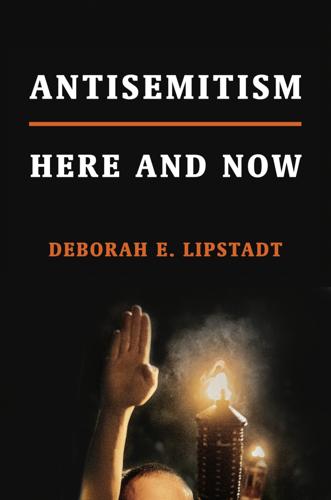
Antisemitism: Here and Now
by
Deborah E. Lipstadt
Published 29 Jan 2019
“The PACBI Call for Academic Boycott Revised: Adjusting the Parameters of the Debate,” PACBI—Palestinian Campaign for the Academic & Cultural Boycott of Israel, January 28, 2006, pacbi.org/etemplate.php?id=1051; Donna Robinson Divine, “The Boycott Debate at Smith,” in Nelson and Brahm, The Case Against the Academic Boycott of Israel, p. 136; Gabriel Noah Brahm and Asaf Romirowsky, “Anti-Semitic in Intent if Not in Effect,” in Nelson and Brahm, The Case Against the Academic Boycott of Israel, p. 80. 6. Mark Yudof, “We Must Defeat BDS Macro-Aggression,” Times of Israel, December 9, 2015. 7. Cary Nelson, “The Problem with Judith Butler,” in Nelson and Brahm, The Case Against the Academic Boycott of Israel, p. 195. 8.
…
Martha Nussbaum, “Against Academic Boycotts,” in Nelson and Brahm, The Case Against the Academic Boycott of Israel, pp. 43, 45. 22. American Association of University Professors, “On Academic Boycotts,” in Nelson and Brahm, The Case Against the Academic Boycott of Israel, pp. 31–38. BDS: ANTISEMITISM OR POLITICS? 1. “The PACBI Call for Academic Boycott Revised: Adjusting the Parameters of the Debate”; “PACBI Guidelines for the International Academic Boycott of Israel,” Palestinian Campaign for the Academic and Cultural Boycott of Israel, July 31, 2014, www.pacbi.org/einside.php?id=69+. 2. Ellen Willis, “Is There Still a Jewish Question?
…
Benny Morris, One State, Two States: Resolving the Israel/Palestine Conflict (New Haven, CT: Yale University Press, 2009), pp. 168–69, as quoted in Nelson and Brahm, The Case Against the Academic Boycott of Israel, p. 192. 7. Himmelstein, “Stanford Professors Take Stand against Divestment.” 8. Richard Pérez-Peña, “Scholars’ Group to Disclose Result of Vote on an Academic Boycott of Israel,” New York Times, December 16, 2013; Mitchell Cohen, “Anti-Semitism and the Left That Doesn’t Learn,” in Nelson and Brahm, The Case Against the Academic Boycott of Israel, p. 159. 9. Mark Yudof, “BDS and Campus Politics: A Bad Romance,” Inside Higher Ed, December 14, 2015. 10.

Can We Talk About Israel?: A Guide for the Curious, Confused, and Conflicted
by
Daniel Sokatch
Published 18 Oct 2021
That’s why BDS is such a difficult issue to get one’s head around. CONFLATING CALLS TO BOYCOTT THE SETTLEMENTS WITH CALLS TO BOYCOTT ISRAEL Muddying the waters further is the fact that the Israeli government and its allies love to purposefully conflate criticism of Israel’s West Bank settlements, especially any calls by Israelis or anyone else to hold Israel accountable for the settlement enterprise, with the BDS movement proper. Remember the anti-boycott law we read about in chapter 14, which made it a civil offense for any Israeli to call for boycotts against Israel, including the settlements? This is all part and parcel of the Israeli government’s campaign to erase the Green Line from the mental maps of all Israelis and from the consciousness of the world.
…
HereGONGOs launched an online video campaign featuring pictures of prominent human rights activists: Peter Beaumont, “Rightwing Israeli Group Accused of McCarthyism over Anti-artist Campaign,” Guardian, Jan. 28, 2016, https://www.theguardian.com/world/2016/jan/28/israel-im-tirtzu-accused-mccarthyism-anti-artist-campaign. HereMade it a civil offense for Israelis to call for a boycott of Israel or its settlements: Jonathan Lis, “Israel Passes Law Banning Calls for Boycott,” Haaretz, Nov. 7, 2011, https://www.haaretz.com/1.5026309;Jonathan Lis, “Israel’s Travel Ban: Knesset Bars Entry to Foreigners Who Call for Boycott of Israel or Settlements,” https://www.haaretz.com/israel-news/.premium-israel-bars-entry-to-foreigners-who-call-for-boycott-of-settlements-1.5445566. HerePunished Arab municipalities and institutions for commemorating: Jack Khoury and Jonathan Lis, “Human Rights Groups Petition High Court to Overthrow ‘Nakba Law,’” Haaretz, Apr. 5, 2011, https://www.haaretz.com/1.5007904.
…
Over the past decade, Netanyahu’s ruling coalitions have promoted rhetoric, policy, and, especially, a raft of legislation designed to strengthen the power of the Jewish majority at the expense of the Arab minority; constrain and diminish democratic institutions like the judiciary and civil society, which serve as a check and balance on the power of the ruling coalition; and protect, expand, and perhaps prepare the way for potential annexation of the settlements. This legislation (much of which we will take a closer look at in part 2) includes laws that: •Made it a civil offense for Israelis to call for a boycott of Israel or its settlements and prohibited entry into Israel of foreigners who did the same. Yes, technically you can be denied entry into Israel if you’ve ever publicly called for people not to buy products made in Israel’s West Bank settlements. •Punished Arab municipalities and institutions for commemorating the 1948 war (known by Israelis as the War of Independence) as the Nakba, or “Catastrophe,” by stripping them of state funding.
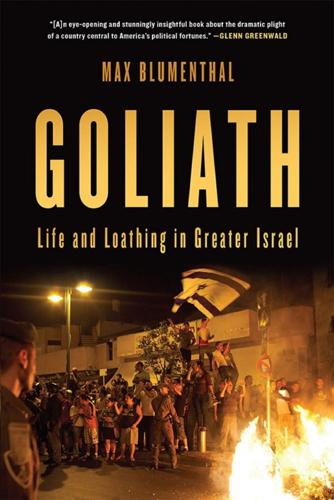
Goliath: Life and Loathing in Greater Israel
by
Max Blumenthal
Published 27 Nov 2012
“Today, if an American citizen or an American company participates in a boycott of Israel, they can expect very heavy fines; economic fines and even jail sentences of several years,” Elkin claimed. It’s a very far-reaching law, and it is an active law,” he claimed. But this was false—there was no law in the United States threatening these boycotters of Israel with any form of punishment. The only American legal provision remotely similar to Elkin’s bill was an obsolete, Cold War–era rule that suspended tax breaks to companies that observed the Arab League’s old boycott of Israel—and which had never been applied in any case.
…
The bill represented a streamlined version of a previous proposal that would have punished boycotters with actual jail time while deporting any non-citizen who called for boycotts of Israel in their own country. In its new, diluted form, the bill explicitly punished speech considered harmful to the Jewish state, allowing any Israeli who felt his or her business was damaged by another Israeli’s call for a boycott—no evidence required—to sue the perpetrator in a civil court. The bill read: “It is forbidden to initiate a boycott against the State of Israel, to encourage participation in it or to provide assistance or information in order to promote it.” Anat Mattar was one of the first Israeli citizens to publicly promote a boycott.
…
list=PL84C61219C00A874E. 220Application of Israeli Sovereignty: Tovah Lazaroff, “Likud Politicians Call on Israel to Annex Area C,” Jerusalem Post, January 1, 2013, http://www.jpost.com/Diplomacy-and-Politics/Likud-politicians-call-on-Israel-to-annex-Area-C. 220While he casually labeled: Chaim Levinson, “Right-Wing Extremists Cite Israeli MK as Source on IDF Movements in West Bank,” Ha’aretz, January 8, 2012, http://www.haaretz.com/news/national/right-wing-extremists-cite-israeli-mk-as-source-on-idf-movements-in-west-bank-1.406158. 220this is a battle between: Harriet Sherwood, “Israel Prepares to Pass Law Banning Citizens from Calling for Boycotts,” Guardian, July 11, 2011, http://www.guardian.co.uk/world/2011/jul/11/israel-law-banning-citizens-boycotts. 222The settlers are the real: Yossi Verter, “The settlers Are the Real Government of Israel,” Ha’aretz, July 15, 2011, http://www.haaretz.com/weekend/week-s-end/the-settlers-are-the-real-government-of-israel-1.373415. 222admirable objectives: Einat Wilf floor speech at Knesset [Hebrew], http://www.youtube.com/watch?v=SAvwomw_tBQ. 222she remembered she was: Verter, “The settlers are the real government” 223I approved the law: Jonathan Lis, “Netanyahu: Boycott Law Reflects Democracy in Israel,” Ha’aretz, July 13, 2011, http://www.haaretz.com/news/diplomacy-defense/netanyahu-boycott-law-reflects-democracy-in-israel-1.373058. 223leading Israel into an abyss: Leslie Susser, “Livni Sticks to Her Guns,” Jerusalem Post, June 30, 2011, http://www.jpost.com/JerusalemReport/Israel/Article.aspx?id=227306. 223you gave in to that pressure: Lahav Harkov, “Netanyahu at Knesset: I Approved ‘Boycott Bill’ into Law,” Jerusalem Post, July 13, 2011, http://www.jpost.com/DiplomacyAndPolitics/Article.aspx?
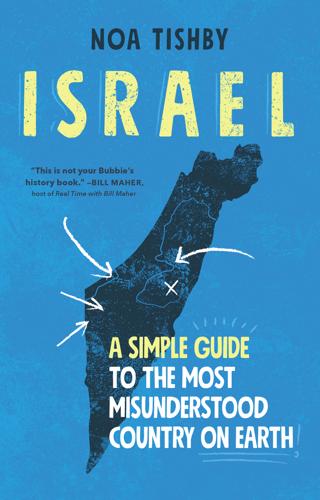
Israel: A Simple Guide to the Most Misunderstood Country on Earth
by
Noa Tishby
Published 5 Apr 2021
BDS, in its current incarnation, was founded in 2005 by Omar Barghouti, a Qatari-born Palestinian with an MA and in the process of receiving a PhD from Tel Aviv University. If you haven’t caught the irony, allow me to hand it to you: Barghouti became an advocate for the academic boycott of Israel while holding a degree from an Israeli university. The BDS movement now has a professional US headquarters, yet it still presents itself as a “grassroots” Palestinian movement. We will get to this soon, too, I promise. So, given the antisemitic history of boycott movements against Israel, is BDS antisemitic or “just” anti-Israel? Let’s use the criteria created by Natan Sharansky, a world-renowned human rights activist who spent nine years in a Soviet prison and was only the fourth non-American to receive the US Presidential Medal of Freedom.
…
Why can’t more Yazidi women come to Israel to be helped, without being afraid of being killed when they go back to Iraq? And not only is the help not being received by our neighbors, the “boycott Israel” movements have become legitimate, and Israel of all places has become in some circles the regional Death Star. Activists from Baghdad to Berkeley to Brandeis are crying for sanctions and boycotts, effectively trying to stop Israel from helping the world and her neighbors advance in technology, healthcare, and agriculture, to stop Israelis from hiring Palestinians in Rawabi, and from helping traumatized Yazidi women.
…
On its website, it’s official statement is this: Boycott, Divestment, Sanctions (BDS) is a Palestinian-led movement for freedom, justice and equality. BDS upholds the simple principle that Palestinians are entitled to the same rights as the rest of humanity. So far, so good. I fully stand for the above as well. The popular narrative is that BDS pushes for a boycott of Israel only in reaction to Israeli policies in the occupied territories and only in order to press the Israeli government to do the right thing and give the Palestinians a state so they can live side by side with Israel. At first glance, this looks good, too. It’s a politically correct, highly sympathetic message, which is likely why the movement has gained support from some members of the US House of Representatives, including Representative Rashida Tlaib (D-MI), Representative Ilhan Omar (D-MN), and Representative Alexandria Ocasio-Cortez (D-NY).
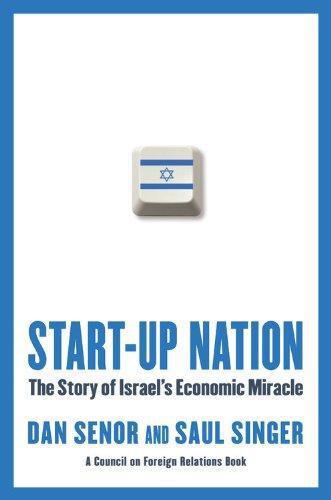
Start-Up Nation: The Story of Israel's Economic Miracle
by
Dan Senor
and
Saul Singer
Published 3 Nov 2009
A notable exception was Subaru, which for a long time had the Israeli market nearly to itself but was barred from selling in the Arab world.3 Every government of the Arab League established an official Office of the Boycott, which enforced the primary boycott, monitored the behavior of secondary and tertiary targets, and identified new prospects. According to Christopher Joyner of George Washington University, “Of all the contemporary boycotts, the League of Arab States’ boycott against Israel is, ideologically, the most virulent; organizationally, the most sophisticated; politically, the most protracted; and legally, the most polemical.”4 The boycott has at times taken on unusual targets. In 1974, the Arab League blacklisted the entire Baha’i faith because the Baha’i temple in Haifa is a successful tourist attraction that has created revenue for Israel.
…
So, in a sense, Yossi Gross should thank France. Charles de Gaulle hardly intended to help jump-start the Israeli technology scene. Yet by convincing Israelis that they could not rely on foreign weapons systems, de Gaulle’s decision made a pivotal contribution to Israel’s economy. The major increase in military R&D that followed France’s boycott of Israel gave a generation of Israeli engineers remarkable experience. But it would not have catalyzed Israel’s start-up hothouse if it had not been combined with something else: a profound interdisciplinary approach and a willingness to try anything, no matter how destabilizing to societal norms. CHAPTER 12 From Nose Cones to Geysers If most air forces are designed like a Formula One race car, the Israeli Air Force is a beat-up jeep with a lot of tools in it. . . .
…
In addition to an overdependence on global venture capital, Israeli companies are also overdependent on export markets. Over half of Israel’s GDP comes from exports to Europe, North America, and Asia. When those economies slow down or collapse, Israeli start-ups have fewer customers. Because of the Arab boycott, Israel does not have access to most regional markets. And the domestic market is far too small to serve as a substitute. Israeli companies will also find it harder to negotiate exits—like Given Imaging’s IPO on the NASDAQ or Fraud Sciences’ sale to PayPal—which are often the means by which Israeli entrepreneurs and investors ultimately make their money.
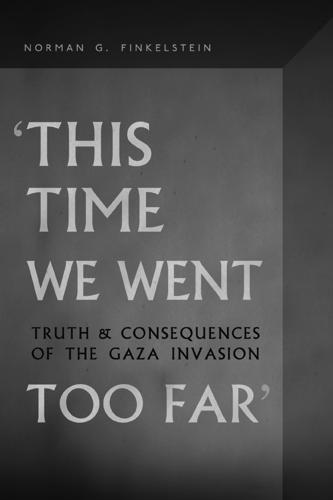
This Time We Went Too Far
by
Norman G. Finkelstein
Published 1 Jan 2010
Even in traditional bastions of support for Israel such as Canada, where the “pro”-Israel bias of the extreme right-wing political establishment and media is unusually intense,44 a plurality of public opinion disapproved of the assault and the Canadian Union of Public Employees passed a motion calling for an academic boycott of Israel.45 Declaring after the ceasefire that “the events in Gaza have shocked us to the core,” a 16-strong group of the world’s most experienced investigators and judges—including Antonio Cassese (First President and Judge of the International Criminal Tribunal for the former Yugoslavia and Head of the U.N.
…
It would be difficult to have any respect for them if they didn’t fire a few rockets back.”81 Meanwhile the City Council of Cambridge, Massachusetts, a liberal enclave and home to Harvard University, adopted a resolution “condemning the attacks [on] and invasion of Gaza by the Israeli military and the rocket attacks upon the people of Israel,”82 and a group of American university professors launched a national campaign calling for an academic and cultural boycott of Israel.83 A poll of American Jews found that 47% strongly approved of the Israeli assault, but—in a sharp break with the usual wallto-wall solidarity—53% were either ambivalent (44% “somewhat” approved or “somewhat” disapproved) or strongly disapproved (9%).84 Seasoned observers of the American Jewish community pointed to a “post-Gaza sea change.”
…
Newman, Izzy: The passionate life and turbulent times of Izzy Asper, Canada’s media mogul (Toronto: 2008), pp.248–54; Marc Edge, Asper Nation: Canada’s most dangerous media company (Vancouver: 2007), pp. 131–51, 173–76, 188–89, 199–204). 45. “Two-In-Five Canadians Criticize Israel’s Military Actions in Gaza,” AngusReid Strategies (22 January 2009; http://tinyurl.com/c9egko); Adrian Morrow, “CUPE Union Votes for Academic Boycott of Israel,” Toronto Star (22 February 2009; http://tinyurl.com/bpnbk2). 46. Amnesty International, “Gaza: World’s Leading Investigators Call for War Crimes Inquiry” (16 March 2009). 47. Yael Branovsky, “Report: Gaza war reverses drop in anti-Semitism,” Haaretz (15 January 2009); “Europe Fears Spike in Anti-Semitism over Gaza,” ynetnews.com (7 January 2009; http://tinyurl.com/dcd7oq). 48.
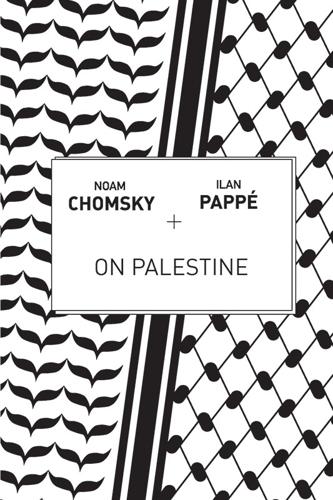
On Palestine
by
Noam Chomsky
,
Ilan Pappé
and
Frank Barat
Published 18 Mar 2015
One of the lasting achievements is a substantial boost in the opportunities for labor organizing which had been crushed under the previous regime. Again, that’s the kind of topic that you are not supposed to talk about here, but it’s important. FB: What do you make of the American Studies Association passing a resolution endorsing an academic boycott of Israel? How important do you think that is? NC: Well, that’s what I had in mind when I was bringing up the Jenin fiasco. It’s very much like it. It was not prepared; it was guaranteed to create a backlash that would overwhelm it. It was not thought out properly. The result is that there has been a shift from concern with Israeli crimes and US support for them to the issue of academic freedom.
…
So even though I agree that more studies will be useful and are important, I do think that the educational process is happening during and after a resolution like the ASA one is passed. The debate in the US is on academic freedom, but people are also asking questions like why is the ASA, a respected institution, asking to boycott Israel? This question might not have been raised if the resolution had not been passed. IP: I think what Noam is trying to say, if I understood correctly, at least this is what I think, is that it is the other way around. You have not yet won the argument that Israel, as a political entity, is problematic.
…
To this day, you read articles by scholars that are suppressing it. These are things you have to deal with. This conversation between Noam Chomsky, Ilan Pappé, and Frank Barat was recorded on January 17, 2014, and has been condensed and edited. * A study by the Alternative Information Center from 2009, “Academic Boycott of Israel,” can be found online. Chapter Four The Future FB: Is an Israeli Spring possible? NC: For the last ten years especially, there has been a very strong shift in Israeli mentality and politics toward the right, nationalism, toward more extremism, there is a kind of circling the wagons mentality which was also true in South Africa toward the end.

The Profiteers
by
Sally Denton
That long relationship with Saudi Arabia, as well as Bechtel’s ties with the leaders of Libya, Iraq, and Iran—Qaddafi, Hussein, and the Shah, respectively—had long sparked distrust among Israeli leaders. Despite working with all of Israel’s neighbors on hundreds of projects in the region, Bechtel built nothing in Israel. The company had long been dogged by allegations of systemic, companywide anti-Semitism, due in part to its unwavering support of the anti-Jewish Arab boycott prohibiting trade with Israel. At a time when oil companies fostered a growing suspicion of Israel in response to its declaration of an independent state and its 1948 war with the Arabs, Steve Sr.’s remarks often included blatant anti-Jewish sentiment. He routinely referred to Jewish associates as “He’s a Jewish fellow, you know,” as if the distinction indicated a stereotyped trait.
…
“As guardian of Islam’s Holy Places, he felt a personal responsibility to recapture what had been lost, and his hatred of Israel went deeper than the antipathy and wounded pride common to all Arabs.” For nearly thirty years, complying with the boycott presented no problem for Bechtel. The boycott prohibited Arabs from trading with Israel directly, from dealing with firms that traded with Israel, and from conducting any business with firms that had Jewish ownership. The League kept a blacklist of more than fifteen hundred firms—mostly American—which the Arab nations shunned. Because Bechtel was one of the few American companies to side with the League against Israel, its political and economic clout in the region rose.
…
Despite the intensive petitioning by Simon and Kissinger, the Justice Department filed suit against the company on January 16, 1976, charging that Bechtel and four of its divisions or subsidiaries had refused to subcontract work in the Middle East to American companies blacklisted by the Arab League as part of their economic boycott of Israel. While Shultz distantly defended Bechtel’s role with the League, Weinberger bore the brunt of the criticism. As general counsel, he had approved the company’s compliance with the boycott. Unwilling or unable to restrain his pro-Arab partiality, he advocated a bellicose confrontation with the Justice Department.
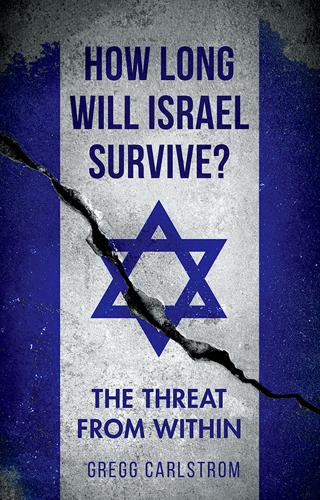
How Long Will Israel Survive Threat Wthn
by
Gregg Carlstrom
Published 14 Oct 2017
Boycott, Divestment, Sanctions (BDS) On a rainy winter morning, hundreds of people, including the president and four cabinet members, packed a Jerusalem conference center for an anti-BDS summit sponsored by Yediot Aharonot, the country’s largest paid daily newspaper. This would be an odd scene in many countries, akin, say, to the New York Times hosting a summit to help the Bush administration combat international criticism of the Iraq war. One by one, guests took the stage and described the Palestinian-led boycott as Israel’s greatest threat. Gilad Erdan, the minister in charge of fighting BDS, warned that campaigners would be made to “pay a very high price,” though he quickly clarified that he wasn’t planning to assassinate anyone. Another minister called for the “targeted civil elimination” of boycott activists.
…
It turns out, in other words, that living illegally on occupied land, while ideologues insist on your religious claim to that land, is an incubator for extreme views. Here the narrative comes full circle. Over the past few years, a growing number of liberal Jews in the diaspora have called for a settlement boycott. Except on the far left, though, they are quick to stress that they do not wish to boycott Israel as a whole. “A settlement boycott is not enough. It must be paired with an equally vigorous embrace of democratic Israel,” Peter Beinart wrote in the NewYork Times in 2012.3 But as the Amona fiasco demonstrated, it is impossible to separate “democratic Israel” from the settlements, because the former supports the latter.
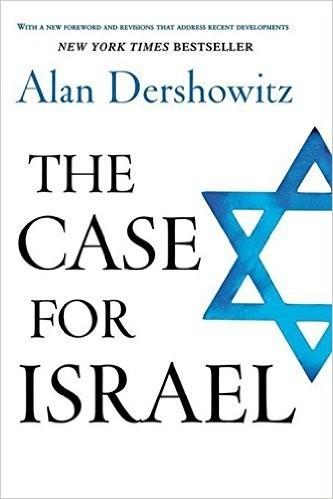
The Case for Israel
by
Alan Dershowitz
Published 31 Jul 2003
There is nothing morally wrong with holding such complicitors accountable so long as the consequences imposed on them are proportional to their complicity. The U.S.-led economic sanctions against Iraq, Libya, and Cuba are collective punishments imposed on large populations for the deeds of their leaders. So were the sanctions and boycotts imposed against Israel by the Arab League. Israel’s policy of demolishing the homes of terrorists or those who harbor them is a soft form of collective punishment directed against the property of those who are deemed somewhat complicit. That it occasionally has an impact on innocent people detracts from its moral purity, but to a considerably lesser degree than widespread economic sanctions directed against entire nations.
…
If the United States were ever to become as even-handed as the international community has been, it would surely encourage continuing aggression against the Jewish state. It would also be morally wrong. Even-handedness toward those whose actions are not morally equivalent is an immoral and dangerous form of artificial symmetry. c30.qxd 6/25/03 8:37 AM 30 Page 197 Should Universities Divest from Israel and Boycott Israeli Scholars? THE ACCUSATION Israel’s actions, more than those of any other nation, warrant divestment and boycott. THE ACCUSERS “We the undersigned . . . call on MIT and Harvard to divest from Israel.” (Noam Chomsky, signing a petition for divestment) “Divestment is wrong in principle. . . . “Divestment is ‘unprincipled’ and ‘it would be loved by Alan Dershowitz, Lawrence Summers and Marty Peretz who are delighted to have more atrocities and violence against Palestinians.’
…
Examples are: The Covenants of terrorist groups like Hamas that commit themselves to the destruction of Israel and the Jewish People Religious legal rulings (fatwas) that call for the destruction of Israel and the Jewish people State-incited calls for genocide (e.g., the Iranian threat to annihilate Israel) • Political anti-Semitism The denial of the Jewish people’s right to self-determination The de-legitimization of Israel as a state The attribution to Israel of all the world’s evils—Israel as the “poisoner of international wells” c31.qxd 6/25/03 8:38 AM Page 211 THE CASE FOR ISRAEL 211 • Ideological anti-Semitism (which surpasses the Zionism = Racism rhetoric) to “Nazify” Israel • Theological anti-Semitism. The convergence of Islamic anti-Semitism and Christian “replacement” theology, drawing on classical hatred of Jews • Cultural anti-Semitism. The mélange of attitudes, sentiments, and discourse of “fashionable” salon intellectuals • Economic anti-Semitism, which goes beyond the Arab boycott of Israel to include extra-territorial application of restrictive covenants against countries trading with Israel • Holocaust denial • Racist terrorism against Jews • Denial to Israel of equality before the law in the international arena. The singling out of Israel for differential and discriminatory treatment in the international arena Whether or not one accepts each of these sets, there can be little doubt that some of these must be included in any comprehensive catalog of bigotry.

Extreme Rambling: Walking Israel's Separation Barrier. For Fun.
by
Mark Thomas
Published 13 Apr 2011
The Barrier is mile after mile after mile of self-delusion.’ The more I think about it, the more the layers of irony begin to pile up: as Israelis turn their back on the West Bank, so the rest of the world starts to be evermore drawn to it. As Israel turns further from the Middle East, looking instead to the West, so the calls for boycotts on Israel grow even louder from Europe. This Barrier does not only isolate the West Bank. Tiredness gets the better of us in the restaurant and we leave while the place is still full, and before Cherie Blair pops in for a nightcap. Outside we say our final goodbyes and promise to keep in touch. Phil and I are staying in East Jerusalem before flying home tomorrow, and the hotel has the harp music playing when we walk in past the overgrown plants and scruffy easy chairs.
…
Mike and Martin and Janet at Roast Beef Productions. Amy at Phil Mac’s. Jake, Liz, Ali, Sarah and Rae at Ebury Press. As usual thanks to JL, CB and IJ … No! You’re the best! appendix FULL TEXT OF THE Boycott, Divestment and Sanctions CALL IN 2005 Palestinian Civil Society Calls for Boycott, Divestment and Sanctions against Israel until it Complies with International Law and Universal Principles of Human Rights 9 July 2005 One year after the historic Advisory Opinion of the International Court of Justice (ICJ) which found Israel’s Wall built on occupied Palestinian territory to be illegal; Israel continues its construction of the colonial Wall with total disregard to the Court’s decision.
…
In light of Israel’s persistent violations of international law; and given that, since 1948, hundreds of UN resolutions have condemned Israel’s colonial and discriminatory policies as illegal and called for immediate, adequate and effective remedies; and given that all forms of international intervention and peace-making have until now failed to convince or force Israel to comply with humanitarian law, to respect fundamental human rights and to end its occupation and oppression of the people of Palestine; and in view of the fact that people of conscience in the international community have historically shouldered the moral responsibility to fight injustice, as exemplified in the struggle to abolish apartheid in South Africa through diverse forms of boycott, divestment and sanctions; and inspired by the struggle of South Africans against apartheid and in the spirit of international solidarity, moral consistency and resistance to injustice and oppression; we, representatives of Palestinian civil society, call upon international civil society organisations and people of conscience all over the world to impose broad boycotts and implement divestment initiatives against Israel similar to those applied to South Africa in the apartheid era. We appeal to you to pressure your respective states to impose embargoes and sanctions against Israel. We also invite conscientious Israelis to support this Call, for the sake of justice and genuine peace. These non-violent punitive measures should be maintained until Israel meets its obligation to recognise the Palestinian people’s inalienable right to self-determination and fully complies with the precepts of international law by: 1) Ending its occupation and colonisation of all Arab lands and dismantling the Wall; 2) Recognising the fundamental rights of the Arab-Palestinian citizens of Israel to full equality; and 3) Respecting, protecting and promoting the rights of Palestinian refugees to return to their homes and properties as stipulated in UN resolution 194.
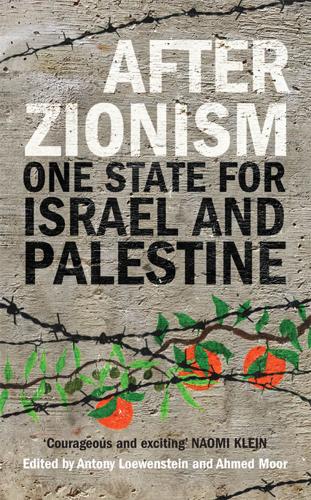
After Zionism: One State for Israel and Palestine
by
Antony Loewenstein
and
Ahmed Moor
Published 14 Jun 2012
“I understand that this means that I have a certain responsibility in the situation. I can’t shy away from the power dynamics which exist between us but at least I am trying to work through them.” Cohen is a prominent Israeli activist who has most recently been involved in international boycott campaigns of Israel. Early in the work of the AATW, he lost his eye after being hit directly with a rubber bullet fired by an Israeli border police officer. At the core of the power dynamics of which Cohen speaks is the dominant ideology in Israeli society, Zionism. For the majority of activists in AATW, Zionism is not an issue they devote any time to.
…
For example, Israeli academic and activist Jeff Halper advocates a South African-style anti-Apartheid struggle against Zionism.12 Others endorse the same strategy in the struggle to end the occupation, without explicitly calling for a unitary state.13 While such a movement could be a way forward, there is nothing comparable at the popular level calling for a one-state solution. The Boycott, Divestment and Sanctions movement against Israel may be one such pathway towards the goal, but it is as yet still too diffuse and ineffective. In any case, as the veteran peace activist, Uri Avnery, points out, the two situations are so different that such an approach is doomed.14 The South African regime had few international supporters, whereas Israel commands the unstinting support of Jewish communities worldwide and the near unconditional support of the world’s only superpower, the United States.
…
Maybe that sort of Zionism can find expression in a liberal nationalism that is both “Jewish and democratic”. About the contributors OMAR BARGHOUTI is an independent Palestinian researcher, commentator and human rights activist committed to upholding international law and universal human rights. He is a founding member of the Palestinian Campaign for the Academic and Cultural Boycott of Israel (PACBI)and the Palestinian Civil Society Boycott, Divestment and Sanctions (BDS) campaign against Israel. He holds bachelor’s and master’s degrees in electrical engineering from Columbia University, NY, and a master’s in philosophy from Tel Aviv University. He is the author of BDS: The Global Struggle for Palestinian Rights.
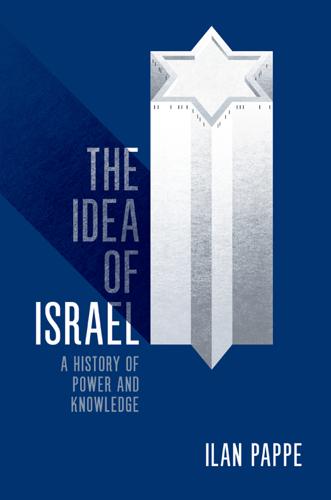
The Idea of Israel: A History of Power and Knowledge
by
Ilan Pappe
Published 30 Apr 2012
But the 1980s saw a flourishing of NGOs and university study modules that investigated gay issues, thus adding to the sense of pluralism in the local academy and society. Unfortunately this new openness was later used by mainstream academia to deflect any attempt to criticise it for complicity in the occupation or the oppression of the Palestinians. The Israeli academic establishment attempted to fend off calls for an academic boycott of Israel earlier in the 2000s by turning to gay and lesbian lobbying groups around the world – a move that was later dubbed ‘pinkwashing’. Broadcasting Tel Aviv as the most gay-friendly city in the West (a title it wins frequently) was one of the main campaigns supported by the government in order to undercut the boycott.
…
In that area, Israeli law would be imposed, hence the need to prepare a racist infrastructure for the future, expanded, and possibly final State of Israel. Post-Zionists were also targeted. The most important law in this respect is the 2011 Law for Prevention of Damage to State of Israel Through Boycott, which defined as a criminal act, bearing the risk of lengthy imprisonment, any support for a boycott of Israel or for an action abroad considered to constitute delegitimisation. To this was added more recently a proposal for a law that would limit foreign funding for human and civil rights organisations in the state. As yet it has not passed. Finally the legal reality in Israel reflects the ideological stance of the powers that be.
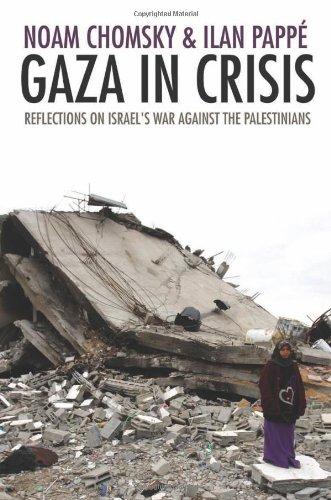
Gaza in Crisis: Reflections on Israel's War Against the Palestinians
by
Ilan Pappé
,
Noam Chomsky
and
Frank Barat
Published 9 Nov 2010
Tauris, 2001), 16-46. 3 United Nations Archives, UNSCOP Verbatim Report in United Nations General Assembly Files, Second Session, August-November 1947. 4 See Ali Abuminah, One Country: A Bold Proposal to End the Israeli-Palestinian Impasse (New York: Holt McDougal 2007); Ghada Karmi, Married to Another Man: Israel’s Dilemma in Palestine (London: Pluto Press, 2007); Joel Kovel, Overcoming Zionism: Creating a Single Democratic State in Israel/Palestine (London: Pluto Press, 2007); and Jamil Hilal, ed., Where Now for Palestine? The Demise of the Two-State Solution (London: Zed Books 2007). 5 The Web site of that campaign is the Palestinian Campaign for the Academic & Cultural Boycott of Israel, www.pacbi.org. 6 See Meron Benvisiti, “The Binationalism Vogue,” Haaretz, April 30, 2009. This was written as a response to the March 2009 Boston conference declaration. 7 The Italian journalist and writer Paolo Barnard is the senior political correspondent of RAI and he posted seven short clips titled “Palestine-Israel: the Missing Narratives,” on YouTube in May 2009. 8 Shimon Peres, Now and Tomorrow (Tel-Aviv: Mabat Books, 1978), 20. 9 See David Landau, “Maximum Jews, Minimum Arabs,” Haaretz, November 13, 2003.

The Biggest Prison on Earth: A History of the Occupied Territories
by
Ilan Pappé
Published 21 Jun 2017
This decision on the currency was swiftly followed by an intensive Israel campaign around the world for foreign and Israeli investment in the territories, and later that month it encouraged Israeli companies to use local firms in the West Bank and the Gaza Strip as fronts for exporting Israeli goods to the Arab world – an attempt to break the Arab trade boycott on Israel.1 The ideological imperative was to keep the territories; the economic logic was that it might be too expensive. In order to minimize the expenditure of creating a new reality on the ground foreign aid was necessary; this was eventually forthcoming, in particular from the American taxpayers’ pocket and later almost solely from the EU.
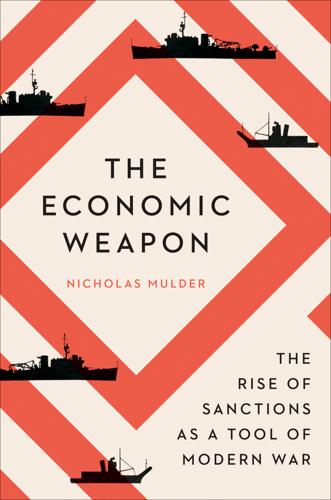
The Economic Weapon
by
Nicholas Mulder
Published 15 Mar 2021
Avraham Barkai, From Boycott to Annihilation: The Economic Struggle of German Jews, 1933–1943 (Hanover, NH: University Press of New England, 1990), pp. 17–23; Christoph Kreutzmüller, “Picketing Jewish-Owned Businesses in Nazi Germany: A Boycott?” in Christoph Kreutzmüller, Boycotts Past and Present: From the American Revolution to the Campaign to Boycott Israel (Cham: Palgrave Macmillan, 2019), pp. 97–114. 51. Samuel Untermeyer, Civilization’s Only Weapon against Hitlerism (New York: Non-Sectarian Anti-Nazi League, 1934); Moshe R. Gottlieb: “The First of April Boycott and the Reaction of the American Jewish Community,” American Jewish Historical Quarterly 57, no. 4 (June 1968): 516–556, and “The Anti-Nazi Boycott Movement in the United States: An Ideological and Sociological Appreciation,” Jewish Social Studies 35, nos. 3–4 (July–October 1973): 198–227; Rona Sheramy, “There Are Times When Silence Is a Sin: The Women’s Division of the American Jewish Congress and the Anti-Nazi Boycott Movement,” American Jewish History 89, no. 1 (2001): 105–121. 52.
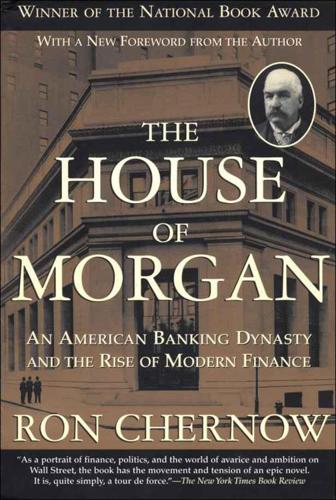
The House of Morgan: An American Banking Dynasty and the Rise of Modern Finance
by
Ron Chernow
Published 1 Jan 1990
Of $14.5 billion in deposits by the OPEC states, 78 percent resided in six banks—Morgan Guaranty, Bank of America, Citibank, Chase, Manufacturers Hanover, and Chemical. Senator Church proved correct in worrying that petrodollars would enlist the political allegiance of bankers in disturbing ways. The sheiks wanted to use letters of credit as a way of enforcing compliance with the Arab boycott of Israel. Under this arrangement, banks had to certify that goods being exported to the Middle East didn’t originate in Israel or with blacklisted American companies, didn’t bear the Star of David, and wouldn’t travel aboard Israeli planes or ships. In 1976, the American Jewish Congress singled out Morgan Guaranty and Citibank for loyally executing this dirty work and cited their “pivotal role in the implementation of the Arab boycott.”7 Morgan Guaranty executed 824 letters of credit including the language of the boycott, although they protested and successfully expunged the offensive language in two dozen cases.
…
As its Middle East fame spread, Morgan Grenfell found at its doorstep people who required inside knowledge of Arab finance or introductions into Persian Gulf diplomatic circles. In 1975, it drew a suitor who demanded an ironclad guarantee of confidentiality—Henry Ford II. Emissaries from Ford Motor posed a maddening riddle: how could the company, blacklisted by the Arab boycott, operate in both Israel and Egypt? This seemed the political equivalent of squaring the circle. Ford Motor was a pariah in the Middle East. From 1950 to 1966, it had operated an assembly plant in Alexandria, Egypt. Then an Israeli Ford dealer got permission to assemble Fords in Israel from imported parts. Despite the absence of direct Ford investment or personnel in Israel, the Arab League threatened a regional boycott of Ford cars if the Israeli deal weren’t scuttled.
…
Instead, he touched off a furious reaction from Harold W. McGraw, Jr., who called in Yerger Johnstone of Morgan Stanley and defense lawyer Martin Lipton and unleashed a blistering counterattack. McGraw picked up any brickbat at hand. He sued American Express for libel, said it cooperated with the Arab boycott of Israel, asked the Federal Communications Commission and the Federal Trade Commission to study antitrust problems, chastised American Express as a menace to the First Amendment, and raised a dozen other issues, bogus and legitimate. In the ultimate slap, McGraw chided American Express for not paying interest on the float from its traveler’s checks.

Enemies and Neighbours: Arabs and Jews in Palestine and Israel, 1917-2017
by
Ian Black
Published 2 Nov 2017
Economic pressure mounted in June when Israel adjusted its closure policy, requiring anyone crossing the green line to be issued with a new magnetic ID card. They were not given to released prisoners or administrative detainees. Many cards were confiscated by militants, forcing Palestinians to boycott Israel regardless of the financial hardship it meant. In Beit Sahour, near Bethlehem, the Israelis confiscated property in lieu of unpaid taxes – attracting sympathetic American media coverage of the Palestinians because of inevitable comparisons with the Boston Tea Party.10 Another growing problem was the beating and killing of collaborators.
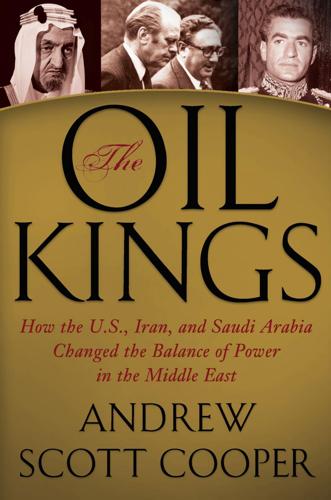
The Oil Kings: How the U.S., Iran, and Saudi Arabia Changed the Balance of Power in the Middle East
by
Andrew Scott Cooper
Published 8 Aug 2011
But it ran aground when liberal and conservative members of Congress protested the sale of sophisticated weapons systems to a country still technically at war with Israel. They were reluctant to be seen doing favors for the world’s richest oil producer during an election campaign. For good measure, lawmakers expressed support for legislation that if signed into law would punish any American company that complied with the Arab trade boycott of Israel. Gerald Ford appealed to Republican opponents of the deal not to antagonize the Saudis and to keep their support for Israel in its proper perspective. “The Saudis have been very helpful in keeping oil prices under control,” he reminded Senators Jacob Javits and Clifford Case in the Oval Office.
…
Simultaneously in Washington, Ambassador Alireza had a 4:51 meeting with President Ford and National Security Adviser Scowcroft. The ambassador handed Ford a letter from King Khalid pledging “to reach a reasonable and acceptable minimum increase” in the price of crude oil. Khalid wrote that he had taken note of President-elect Carter’s pledge to oppose “any legislation against the boycott of Israel, and that he will use leverage on Israel to prevent it from committing any act of aggression against the Arabs in Southern Lebanon. Undoubtedly, this was a good initiative on his part, and we would like to wish him every success during his presidency for the good of his country and the world at large.”
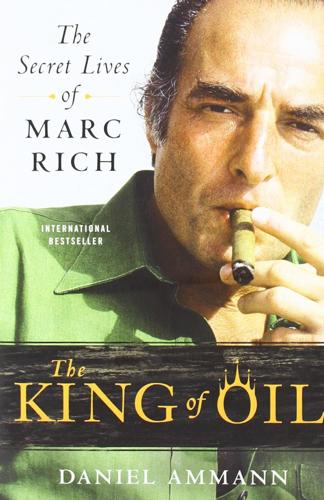
The King of Oil: The Secret Lives of Marc Rich
by
Daniel Ammann
Published 12 Oct 2009
She suggested the two nations cooperate in the construction and management of a pipeline. The meeting was top secret, as Iran did not officially recognize Israel. The shah had his own regional interests, and he had no desire to damage his relationship with the Arab world. The Arab nations considered Israel a pariah, and together they had organized a boycott of Israel. Nevertheless, the shah, whom the Israelis referred to by his cover name “Landlord,” signaled that he was prepared to enter into secret negotiations. The Iranians were represented by the National Iranian Oil Company (NIOC), and the Israelis sent high-ranking government representatives as well as members of the Mossad to the talks—a fact that underscored the project’s immense strategic importance.
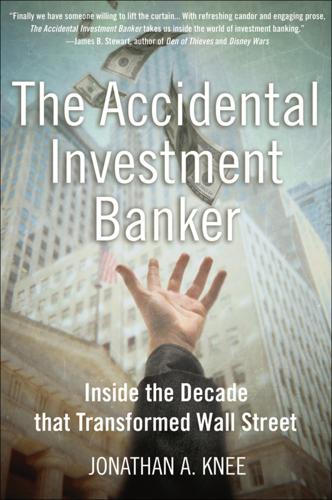
The Accidental Investment Banker: Inside the Decade That Transformed Wall Street
by
Jonathan A. Knee
Published 31 Jul 2006
Third, the transaction that secured Weinberg’s place as an iconic adviser and Goldman’s place as the premier Jewish banking house, was reflective of changes in the industry and society at large. Henry Ford’s deep and well-documented anti-Semitism makes it highly unlikely that he would have invited a Jew into the inner family sanctum. Henry Ford II, however, was committed to erasing his grandfather’s legacy of bigotry. He would later publicly refuse to join the Arab boycott of Israel, at significant cost to the company.10 And Sidney Weinberg wasn’t just a Jewish banker, he looked and sounded like one. At 5′ 4″, Weinberg looked “less like an elder statesman than like a kewpie doll.”11 Weinberg never converted, changed his name, or lost his thick Brooklyn accent, unlike many aspiring financiers before and after him.
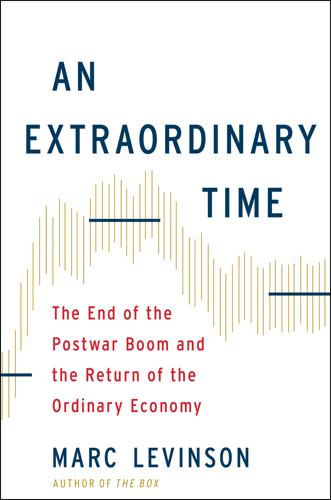
An Extraordinary Time: The End of the Postwar Boom and the Return of the Ordinary Economy
by
Marc Levinson
Published 31 Jul 2016
The oil shock upset the equilibrium in Canada, setting off a boom in oil-rich Alberta while crippling import-dependent Quebec. The reverberations were even more disquieting in Japan. As petroleum prices rose through 1973, the Japanese did not anticipate serious trouble; their country had little engagement with the Middle East, and many Japanese companies had even complied with the Arab boycott against Israel. But Japan’s neutrality in Middle Eastern affairs did not spare it from pain when oil prices spiked. The Japanese did not block highways or threaten gas station attendants, but anxiety over the end of cheap petroleum ran very deep: every drop used to fuel Japan’s huge industrial base was imported.
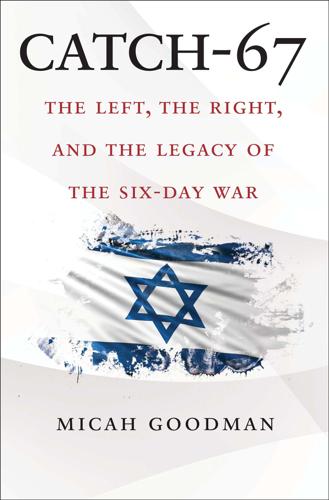
Catch-67: The Left, the Right, and the Legacy of the Six-Day War
by
Micah Goodman
Published 17 Sep 2018
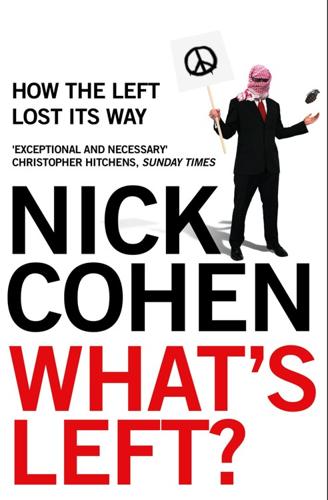
What's Left?: How Liberals Lost Their Way
by
Nick Cohen
Published 15 Jul 2015
The Independent and New Statesman produced neo-Nazi iconography, while an article reprinted by the London Review of Books won the praise of a former leader of the Ku Klux Klan for explaining that a Jewish ‘Lobby’ controlled American foreign policy. The Church of England’s General Synod, university lecturers and architects called for boycotts of Israel and none of them felt the need to explain why they didn’t demand boycotts of states which had committed far greater crimes against humanity, up to and including genocide. When you asked them why they were singling out Jews for special treatment, they cried that the Jews always said that criticism of Israel was ‘antisemitic’, even though no serious scholar, journalist, Jewish organization or Israeli politician did anything of the sort.
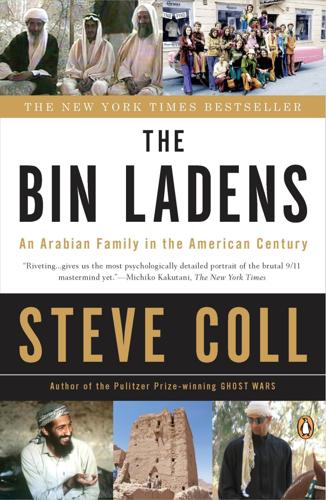
The Bin Ladens: An Arabian Family in the American Century
by
Steve Coll
Published 29 Mar 2009
Salem ordered Cadillacs for the Saudi royal family and had them fitted with armor so that they could repel machine-gun fire. With Sowell’s help, he also ordered about a dozen Lincolns and shipped them over to the kingdom from New Orleans. He ordered five thousand cases of Tabasco sauce and flew it to Saudi Arabia—he said he liked the taste. Coca-Cola was subject to the Arab boycott against Israel, so Salem discovered an alternative soft drink called Mello Yello and had it shipped home in vast quantities. He found a small plastic airplane toy that tickled him and he bought thousands to take home as gifts. To decorate the desert gardens of a palace his family firm was building for Crown Prince Fahd, he shipped home in refrigerated containers what seemed like a substantial portion of the vegetation of the American Southwest: 481 large American cacti, 360 small cacti, 485 mixed cacti, 100 yucca trees, 625 orchids, and more than 5,000 other desert plants, bushes, and trees.7 Salem invited Fahd himself to Panama City, according to Sowell.

Like Dreamers: The Story of the Israeli Paratroopers Who Reunited Jerusalem and Divided a Nation
by
Yossi Klein Halevi
Published 4 Nov 2014
How had the pioneer statesmen and their hero generals become so complacent, so arrogant, that they had failed to notice the growing strength of Arab armies and the prewar buildup on the borders? The world had never seemed to Israelis a more hostile place than it did in late October 1973. The Arab oil boycott, which punished pro-Israel countries with a suspension of oil deliveries, pressured Third World countries to sever relations with the Jewish state, while panicked European governments suddenly discovered the Palestinian cause. Only two countries—the United States and Holland—stood with Israel. And who knew for how much longer?
…
AND THEN, UNEXPECTEDLY, Gush Emunim received a gift. On November 10, 1975, the UN General Assembly voted, 72 to 35, with 32 abstentions, to declare Zionism a form of racism. The resolution, initiated by Arab nations and endorsed by the Soviet and Muslim blocs, was the culminating moment of the growing Arab success, impelled by the oil boycott, to isolate Israel. Sitting in solemn assembly, the UN in effect declared that, of all the world’s national movements, only Zionism—whose factions ranged from Marxist to capitalist, expansionist to conciliatory, clericalist to ultrasecular—was by its very nature evil. The state of the Jews, the Israeli political philosopher J.
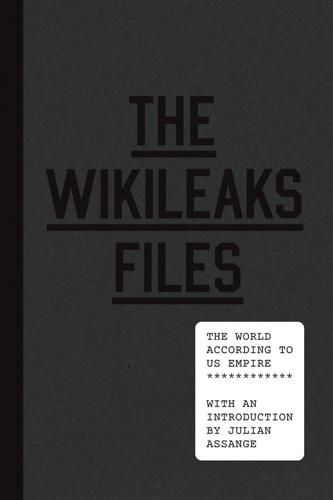
The WikiLeaks Files: The World According to US Empire
by
Wikileaks
Published 24 Aug 2015
Netanyahu said his Bar Ilan address last June [where he outlined his conditions for Palestinian statehood] had been difficult for him, but it had united Israelis in support of accepting a demilitarized Palestinian state. The current GOI had also restrained construction in settlements more than its past several predecessors. Netanyahu then contrasted his efforts with the PA, which he said is maintaining a “political and economic boycott” of Israel, setting preconditions for negotiations, supporting the Goldstone Report in the UN, and is now talking about a unilateral declaration of independence. Israel wants to engage, but the Palestinians do not. [09TELAVIV2777] Of course, Netanyahu repeatedly demonstrated the limits of his own willingness to engage core Palestinian demands.

1967: Israel, the War, and the Year That Transformed the Middle East
by
Tom Segev
Published 2 Jan 2007
Moshe Bornstein, a Holocaust survivor, was the owner of the Israeli beverage company Tempo, and had been trying for years to win the Israeli franchise to make Coca-Cola. The company had repeatedly turned him down, apparently fearing that manufacturing the beverage in Israel would lead to its boycott in Arab countries.* Israel and Jewish organizations in America consistently fought against the Arab commercial boycott, and Israel even kept a special consul in New York specifically for that purpose. In 1966 the consul was the journalist Yuval Elitzur, a writer for Maariv. Elitzur frequently worked with Arnold Forster, an official of the Anti-Defamation League of B’nai B’rith, who, as Elitzur described, launched an initiative called “Operation Coca-Cola.”
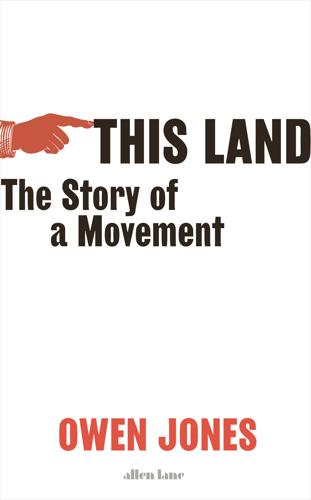
This Land: The Struggle for the Left
by
Owen Jones
Published 23 Sep 2020

Doppelganger: A Trip Into the Mirror World
by
Naomi Klein
Published 11 Sep 2023
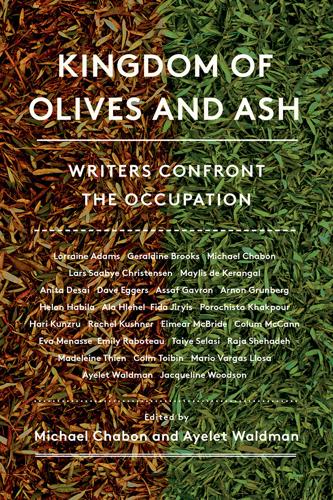
Kingdom of Olives and Ash: Writers Confront the Occupation
by
Michael Chabon
Published 29 May 2017
But they exist, they are there, sometimes demoralized, but always active, and they—I call them the righteous ones—are for me the best guarantee of a different future for Israel, of peace and friendship with their neighbors and of coexistence and cooperation with the Palestinians. I am and will always be against the “academic boycott” that threatens Israel. I will always be against “collective punishment” in which the righteous ones often pay for the misdeeds of the sinners. More so in this case, because it is absurd to penalize universities in Israel for the excesses of their government. Universities are often the best foci of resistance to the policies of Netanyahu, the places where the most constructive ideas and initiatives are developed in favor of a just and sensible agreement between Palestinians and Israelis. 2.
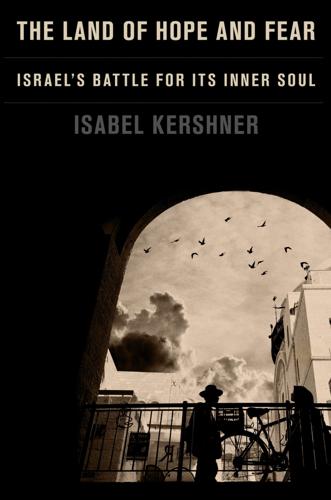
The Land of Hope and Fear: Israel's Battle for Its Inner Soul
by
Isabel Kershner
Published 16 May 2023
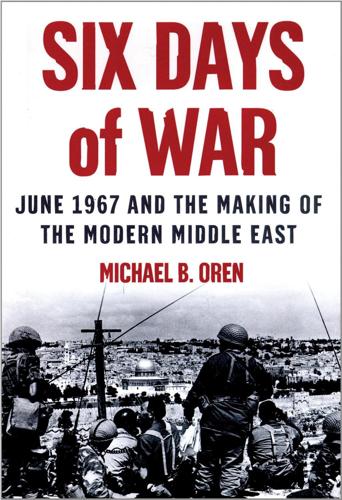
Six Days of War: June 1967 and the Making of the Modern Middle East
by
Michael B. Oren
Published 2 Jun 2003
But then, in an address to the Mapai leadership, the same Eshkol could also warn: “We are surrounded by a serious encirclement of hostility and that which doesn’t succeed today could well succeed tomorrow or the day after. We know that the Arab world is now divided in half…but things can always change.”66 THE CRISIS Two Weeks in May In the face of Arab and UN Condemnations and boycotts by Western ambassadors, Israel marked its independence. The parade had been pared down to a mere twenty-six minutes, 1,600 soldiers and a few vehicles—“a boy scouts march,” Colonel Lior derided it. Eshkol’s decision to put the lowest possible profile on the celebrations elicited bitter criticism from his opponents, most vocally Ben-Gurion, who accused him of kowtowing to international pressure.
…
Even the Syrians finally relented and agreed to send a brigade to fight alongside the Iraqis in Jordan. Combined, the Arab armies could field 900 combat aircraft, over 5,000 tanks, and a half million men. Added to this was immense political might. Arab oil producers had agreed to boycott any countries that assisted Israel, to nationalize their refineries and even destroy their pipelines. The Suez Canal, warned Nasser, could be blocked. Arabs across North Africa, throughout the Fertile Crescent and the Gulf, felt bound by a single, exalted effort, as expressed by President ‘Aref of Iraq: “Our goal is clear—to wipe Israel off the face of the map.
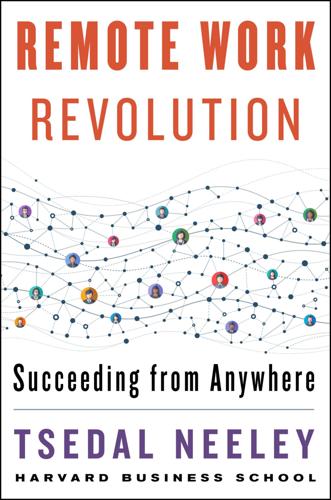
Remote Work Revolution: Succeeding From Anywhere
by
Tsedal Neeley
Published 14 Oct 2021
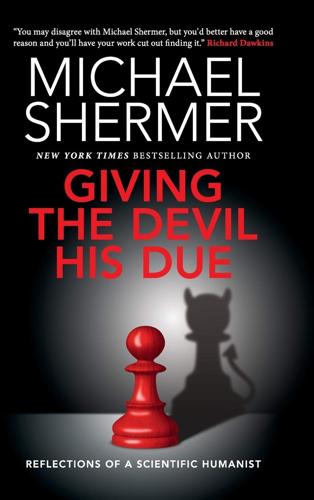
Giving the Devil His Due: Reflections of a Scientific Humanist
by
Michael Shermer
Published 8 Apr 2020
“The Latest Example of Political Correctness Run Amok: A Misguided Revolt at One of the Most Liberal Colleges in America.” Business Insider. April 18. https://read.bi/2Hyrs5L 4. King Jr., Martin Luther. 1963. “I Have a Dream…” Speech by the Rev. Martin Luther King at the “March on Washington”. US Government Archives. https://bit.ly/2fmjJXA 5. BLM (#blacklivesmater), BDM (Boycott, Divestment, Sanctions of Israel), MSM (Main Stream Media), LGBTQI (lesbian, gay, bisexual, transsexual, questioning, intersex), SJW (Social Justice Warriors), #metoo (Harvey Weinstein), #TakeAKnee (NFL national anthem protests), Dreamers (children of illegal immigrants born in the USA), Google Memo (the firing of James Demore), Milo (Yiannopoulos), Charlottesville (neo-Nazis), Evergreen (protests against professor Bret Weinstein), Berkeley (protests against Milo, Ann Coulter, et al.), Yale (protests over Halloween costumes), Middlebury (protests against Charles Murray), Parkland (school shooting), microaggressions (offensive words or phrases), safe spaces (places for students to go after hearing offensive speech), no platforming (disinvitation of speakers), hate speech (v. free speech). 6.

Rise and Kill First: The Secret History of Israel's Targeted Assassinations
by
Ronen Bergman
Published 30 Jan 2018
He came to the conclusion that only a political solution with the Palestinians—the two-state solution—could end the 150-year conflict, and that the result of Netanyahu’s policies would be a binational state with parity between Arabs and Jews and a concomitant danger of constant repression and internal strife, replacing the Zionist dream of a democratic Jewish state with a large Jewish majority. He was anxious that the calls for an economic and cultural boycott of Israel because of the occupation would become bitter reality, “just like the boycott that was imposed against South Africa,” and even more anxious about the internal division in Israel and the threat to democracy and civil rights. At a rally in central Tel Aviv before the March 2015 elections, calling for Netanyahu to be voted out, he addressed the prime minister: “How can you be responsible for our fate if you are so frightened of taking responsibility?
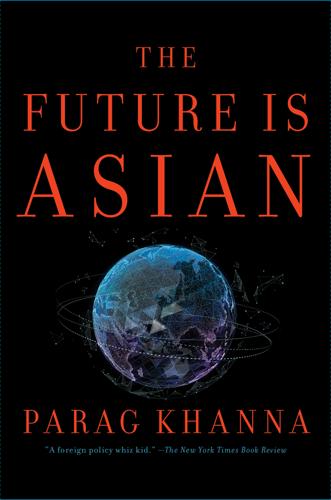
The Future Is Asian
by
Parag Khanna
Published 5 Feb 2019
With terrorism and anti-Semitism on the rise in Europe, the government of Prime Minister Benjamin Netanyahu has called upon all Jews to return to Israel and fortify its demographic base. Yet, like Turkey and Russia, Israel feels increasingly shunned by the European Union, which has pushed for an independent state for Palestinian Arabs, while European groups have launched divestment and boycott campaigns against it. Israel’s response has been to double down on democratic illiberalism: in 2018, its parliament passed a resolution declaring the state’s raison d’être as being a home for Jews and Jewish values, with no mention of minority rights. Even though the United States provides robust military assistance to Israel—and Donald Trump recognized Jerusalem as Israel’s capital—Israeli leaders know that many American Jews challenge the need for a special alliance they feel provides the Israeli government excessive impunity.
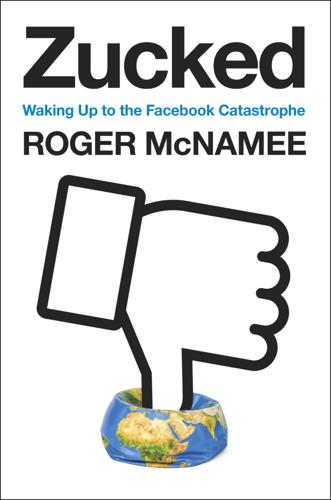
Zucked: Waking Up to the Facebook Catastrophe
by
Roger McNamee
Published 1 Jan 2019
Collective action enabled the country to build the best public education system in the world, as well as the interstate highway system, and to send men to the moon. The average American enjoyed an exceptionally high standard of living. Then came the 1973 oil crisis, when the Organization of Petroleum Exporting Countries initiated a boycott of countries that supported Israel in the Yom Kippur War. The oil embargo exposed a flaw in the US economy: it was built on cheap oil. The country had lived beyond its means for most of the sixties, borrowing aggressively to pay for the war in Vietnam and the Great Society social programs, which made it vulnerable.
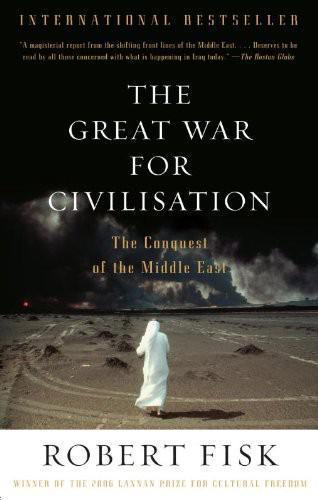
The Great War for Civilisation: The Conquest of the Middle East
by
Robert Fisk
Published 2 Jan 2005
I watched the future Iraqi leader carefully, and when his eyes briefly met mine I noted a kind of contempt in them, something supercilious. This was not, I thought, a man who had much faith in conferences. And he was right. The Saudis made sure that they didn’t anger the United States, and after three days of deliberation the Arab mountain gave forth a mouse. Egypt would be put under an economic boycott—just like Israel—and a committee would be dispatched to Cairo to try to persuade Sadat to renounce Camp David. To sweeten the deal, they were to offer him $7 billion annually for the next ten years to support Egypt’s bankrupt economy. The unenviable task of leading this forlorn delegation to Cairo fell, rather sadly, to Selim el-Hoss, the prime minister of Lebanon whose own war-battered country was then more deeply divided than the Arab world itself.
…
But the Syrians could also be uncompromising. They would not accept what the Americans called “confidence-building measures”—the presence of military observers, an end to propaganda campaigns—before the start of Israeli withdrawal from occupied Arab land. There would be no end to the Arab economic boycott of Israel and no agreements on water resources until the Israelis had undertaken “a comprehensive withdrawal from occupied territories.” In their private discussions with the Americans, the Syrians had also insisted that they would negotiate on the Palestinian question as well as on Golan in order to prevent the Israelis exploiting what Damascus feared was the weakest Arab team at the conference, the joint Jordanian–Palestinian delegation.
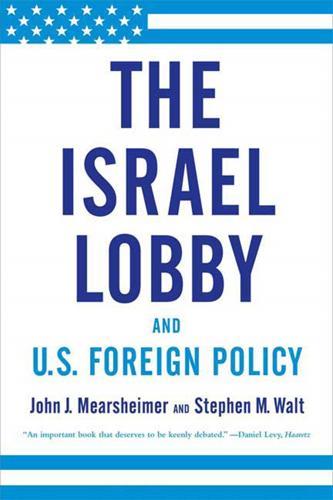
The Israel Lobby and U.S. Foreign Policy
by
John J. Mearsheimer
and
Stephen M. Walt
Published 3 Sep 2007
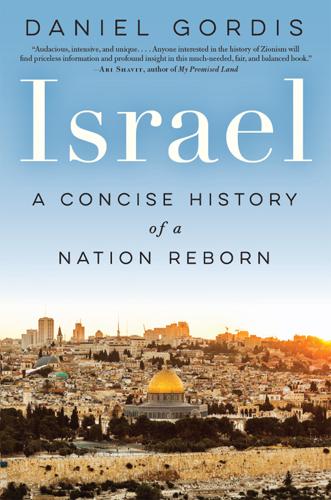
Israel: A Concise History of a Nation Reborn
by
Daniel Gordis
Published 17 Oct 2016
Particularly among Israel’s political Right, there were many who would never forgive Kissinger for having delayed arms shipments when they had been so desperately needed. France’s support of the Arab state by supplying military equipment surprised few, but Israelis were stunned that Britain—which, like much of post-oil-boycott Europe, was abandoning Israel and moving toward the Arabs—had imposed an embargo on military aid to the region. When Britain finally broke its own embargo, it was by training Egyptian helicopter pilots. When Israel complained, Britain told Israel that they were better off having those pilots training in England than at the front in the Middle East.
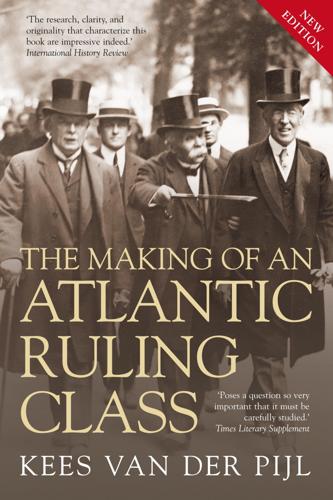
The Making of an Atlantic Ruling Class
by
Kees Van der Pijl
Published 2 Jun 2014
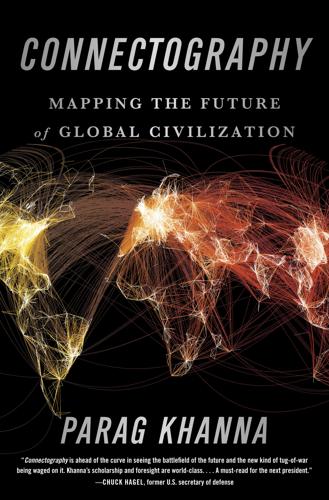
Connectography: Mapping the Future of Global Civilization
by
Parag Khanna
Published 18 Apr 2016
* * * *1 Similarly, in September 2015, British Chancellor of the Exchequer George Osborne became the first British minister to visit China’s restive, Muslim-populated Xinjiang province, where he lobbied on behalf of British businesses for deals in industrial parks catering to the emerging Eurasian Silk Roads. *2 Coca-Cola is the market leader in Iran as well. Sold by Coke’s Irish subsidiary, it is bottled by the local joint venture partner Khoshgovar. *3 Similarly, for every European country that launches a boycott, divestment, and sanctions initiative against Israel on behalf of the Palestinians, some hedge fund or Chinese construction company launches a new investment with it. *4 Though Ukraine lost Crimea, it still controls Crimea’s electricity supply. A series of attacks by Ukranians on power transmission lines in November 2015 plunged Crimea into darkness
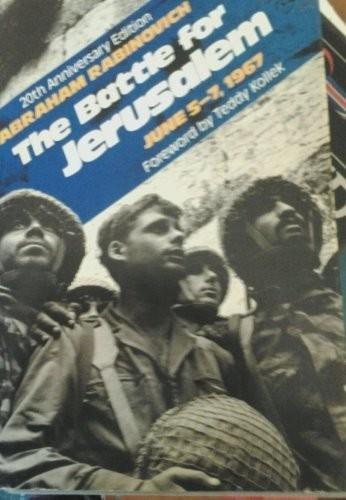
The Battle for Jerusalem, June 5-7, 1967
by
Abraham Rabinovich
Published 1 Jan 1987
The troops had had nothing substantial to eat in two days, and commanders permitted their men to break into food shops. (Journalists were to find shutters on jewelry shops and camera stores undisturbed.) The most sought-after beverage was not spirits but Pepsi-Cola, which the Arab boycott had succeeded in banning from Israel and which most of the young Israelis had never tasted. In one grocery the starving men wolfed down yogurt, smearing on their sooty faces a white harlequin mask. << Chapter >> Home | TOC | Index Mopping Up 329 Occasionally, Arab hospitality surfaced even toward an occupying army.
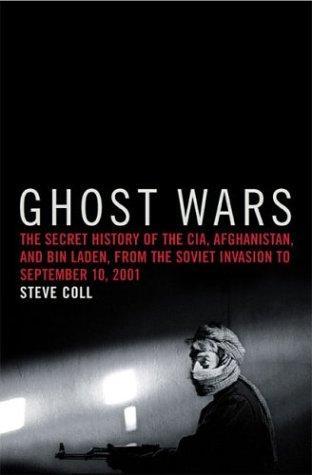
Ghost Wars: The Secret History of the CIA, Afghanistan, and Bin Laden, from the Soviet Invasion to September 10, 2011
by
Steve Coll
Published 23 Feb 2004
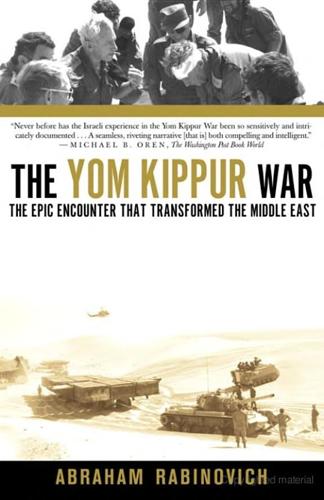
The Yom Kippur War: The Epic Encounter That Transformed the Middle East
by
Abraham Rabinovich
Published 1 Jan 2004
It was Kissinger’s impression that the Egyptians were leaving an opening for border adjustments on the West Bank and even for an Israeli presence along the Jordan River, aimed at preventing any Arab army from linking up with the West Bank. Once Israel declared its readiness for a pullback, said Ismail, demilitarized zones would be created on both sides of the Israeli-Egyptian border. Israeli vessels would be permitted to use the Suez Canal and Egypt would end its boycott of companies trading with Israel. There would, however, not be diplomatic relations or open borders. This would have to await an Israeli settlement with Syria (including full withdrawal from the Golan Heights), Jordan, and the Palestinians. Arab control of East Jerusalem and the Temple Mount was nonnegotiable. Kissinger was skeptical about Israel agreeing to these terms, even though they were far better than anything any Arab state had yet offered.